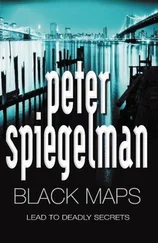The Count was taken aback: flattery came his way very rarely and that sweet-smelling colonel, in cahoots with the Boss, was praising him and had even managed to move him. So he had been a good policeman, had he?
“Thanks, Colonel,” he said, and began to prepare his best salute, knowing it would never satisfy the rules and regs. For fuck’s sake, he said to himself, stretching his hand over the desk, ready to make a run for it. Like Miriam, though for different reasons, the Count wanted to cry.
Wanted to, really: and from his own eyes.
Violins accompanied the oboe, pianissimo, bathed dreamily in the agony of the passage, before yielding to the vigorous instrumental crescendo and choir rapturously singing Schiller’s verses to joy. By some phonetic or poetic miracle, the German voices were not at all the harsh growl usually associated with that language, and they grew into an expansive cantata that, like few human creations, succeeded in communicating, in an ecstatic epiphany, the feeling of life, the certainty of hope and possibility of optimism: for the first time the Count thought that ode was like a primitive song to fruitfulness, an invocation to the hidden gods of heaven and earth in order to gain their favour.
His eyes turned towards the garden: the old man, Alfonso Forcade, seemed impervious to the music booming out from the cassette recorder perched on the iron bench, at maximum volume so it reached the remotest corner of that arbour. Nonetheless, as the Count observed him more leisurely, he noticed slight tremors in the neck of the old man, who naturally carried within him the whole chorus and orchestra, perhaps under the orders of Beethoven himself: Forcade tried to communicate his own emotion to the plants, to make them share in the redeeming spirit. That was why the Count waited for the choir to end before he interrupted the concert.
“You like Beethoven?”
“They like him… As well as Wagner, Mozart and Vivaldi. It is well known that wheat is particularly sensitive to the sonatas of Bach. And no secret that plants grow and produce more when they are given symphonic music to listen to.”
“Wouldn’t it be a cruel shame if the hurricane put an end to all this?”
“No, you are quite wrong. Nature is never cruel, because she doesn’t know how to be. Cruelty is a sad privilege of human beings. That is why the pre-Hispanic cultures of the Caribbean personified the hurricane and gave it a human figure. For them it was the terrible god of the Tempest, and they called it ‘hurracane’, ‘yurricane’ or ‘yoracane’, according to their dialect, but in each and every case the word meant Malign Spirit, more or less what the devil is to Christians, and that’s why they gave songs and dances as peace-offerings… as I’m doing now… The fact these disasters occur never ceases to be regrettable: perhaps tomorrow all of this garden that I have planted and tended for nigh on thirty years will be gone. That also makes one want to weep.”
Leaning on his wooden crutches, old Forcade got up and walked slowly between the garden paths where a threatening breeze was already rising, and Mario Conde puffed on his cigarette. The policeman waited for the symphony to finish before telling him how the investigation had ended. He didn’t seem overly surprised by the news that his son had died at the hands of Adrian Riverón and because of Miriam. Perhaps he mind-read one of them? wondered the Count, knowing that any answer would be unimportant. As a scientist, Dr Forcade knew Miguel’s death was irreversible and merely commented: “Do you know something? I was right to let you do the thinking, because you’re much more intelligent than I am… I thought Miriam might have done the whole lot… And look who it was, the poor man. Well, I’m glad I was able to be of some help. And that justice has been done. May God be merciful…”
Then they began to walk slowly back to the wrought-iron bench, as if making a final tour of a landscape that would be definitively different after the god of the Winds had passed by.
“At the end of the day these plants and I will suffer the same experience: that is where we surely share the same destiny of birth and death. What is terrible is to see the beings one has begat and loved die before oneself.”
The Count felt a desire to remind him that there were many other differences between Miguel and those plants, but concluded it would be too cruel on his part. A privilege of human nature. And he also thought how Alfonso Forcade knew precisely what manner of man his son had been. And then decided to think no more: the old man might read his thoughts again.
“But the silk-cotton tree, the baobab and the laurel will resist. They might lose the odd branch, but they will resist,” commented the old man, indifferent to the Count’s thoughts, and his voice lilted joyously. He even smiled, and his teeth stayed exposed to the elements, until the curtain of his lip fell.
“I expect it’s because they are sacred trees, isn’t it?”
“No, I don’t believe any of that… They will resist because they’re stronger and that’s another of Nature’s laws. The wiliest and the strongest survive. The rest go to the dogs, Lieutenant.”
“Take it easy, Manolo,” begged the Count, though he had no intention of looking out of the window.
If the hurricane came, many of those building would cease to exist, like old Forcade’s music-loving trees, and his day’s charge of emotions already seemed on the high side.
“I’m just upset, Conde.”
“How come?”
“I’m upset because you’re leaving the police.”
“Well, I’ve got a cure for that: jerk yourself off twice, stand on your head and take a diazepam with a lime infusion and you’ll see how relaxed you get.”
“Fuck off, you always come out with the same shit,” his colleague protested, as he drove round the corner and parked the car in front of Major Antonio Rangel’s house.
While Manolo disconnected the aerial, the Count contemplated that idyllic image: in the foreground a bonfire was burning, dry leaves that had certainly been cut because of the imminent tempest, and, further back, up a ladder, a man nailing down wooden panels over the windows at the front of the house. And the Count wondered: if he’d still been the chief, who the fuck would have done this? because the Major would have been at Headquarters, giving orders, supervising, listening to cases and tying up all the loose ends so the final knot fell right into his hands.
“Can I be of help?”
“Quiet, Mario, look where the hell I am,” said Rangel, from his ladder, not turning round to look at his visitors and abandoning his domestic chore, almost pleased with what he’d done. “Let’s go inside. I’ll finish this later.”
“Ana Luisa will kill you,” the Count warned, and at last the Major smiled.
It was perhaps the first time his teeth had been visible out of sheer glee. Maybe in his mere five days out of the police, awesome Major Rangel had recovered a capacity that had seemed lost for ever.
“Well, you know, I’m really happy with everything I’ve done at home today. And as the store advanced us oil because of the hurricane, we’re having fried yucca for lunch… Come on, let’s go in,” he said, as he let them through into the library. “Sit down.”
The Count and Manolo sat in the armchairs and the Boss opened up his small humidor, which was packed to bursting with cigars.
“Go on, pick one. Careful, they’re Davidoff Cinco Mil Gran Corona.”
“Now you really have gone mad,” declared the Count, who in ten years had only ever extracted one Davidoff from the Boss: his meanness as a cigar-smoker climbed its most selfish peak with Davidoff Cinco Mils.
“But there’s more,” Rangel assured him, as he opened up a desk drawer and brought out the unthinkable: the shine on the black label of that Johnny Walker went way beyond the Count’s expectations and all of Major Rangel’s traditions. The Boss set three glasses on the table, put ice in each, and poured out three generous helpings of amber liquid. He gave a glass to each guest, raised his own, and said: “Congratulations, Mario Conde.”
Читать дальше











